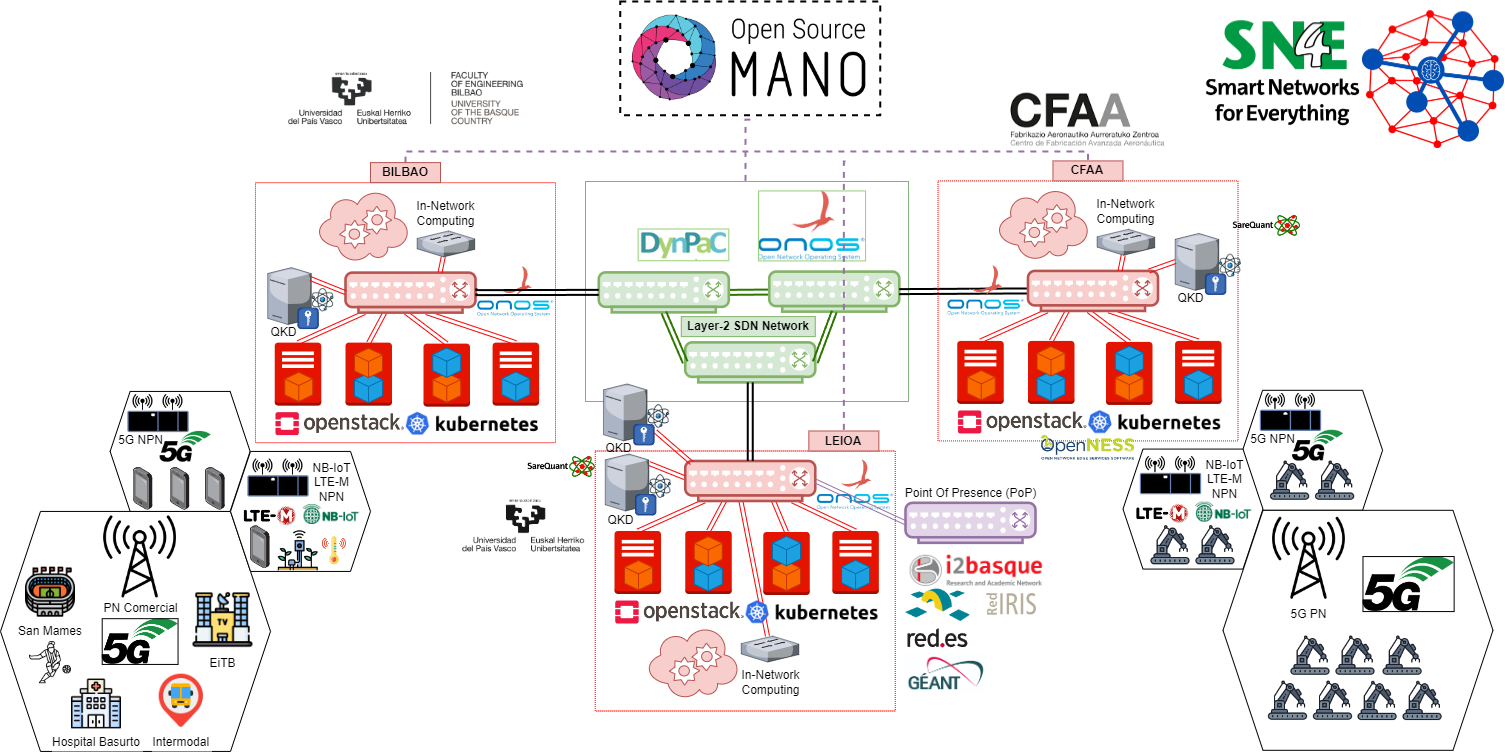UNICO 6G approved, Smart Networks for Everything (SN4E)

The Smart Networks for Everything (SN4E) project, integrated into the ESFRI SLICES-RI infrastructure, is the logical advancement of the current SN4I infrastructure. This project proposes the deployment of a research and experimentation environment for the transfer of knowledge between the academic, industrial, and social sectors. In this context, an infrastructure is proposed that provides research resources for 5G/6G while also providing innovative services to various verticals, such as advanced manufacturing (through the current Zamudio node), health, education, transportation, and mobility (through the Bilbao Engineering School node).
SN4E builds on the current Smart Networks for Industry (SN4I) infrastructure, seeking to extrapolate the good results obtained from multi- and interdisciplinary cooperation (telecommunications and advanced manufacturing). In SN4E, interdisciplinarity is extended to other branches: optical communications, TSN industrial networks, industrial process automation, bioengineering, applied mathematics, and legal sciences. Therefore, experts can work together researching not only the basic technologies leading to 6G, but also their application to other productive sectors and society, providing an innovative and disruptive testing environment.
SN4E aims to become the leading test platform and talent aggregator in northern Spain. It proposes to offer access to a broad range of technologies, including 5G mobile networks and, in the medium term, Beyond 5G in all three frequency bands. Simulators will be offered for both UEs and 5G Cores to facilitate basic research, design, and evaluation of both basic elements of the 5G architecture and new services based on 5G/6G networks. SN4E represents a technological leap compared to its predecessor due to the integration of new technological resources indisputably linked to the evolution of 6G mobile networks, such as communication synchronization systems based on TSN and their transport over URLLC for critical and real-time applications, the development of ultra-secure architectures based on the use of QKD and quantum communications, the availability of application offloading and network information processing at line speed (100-400 Gb/s), through the use of programmable data planes based on P4.


